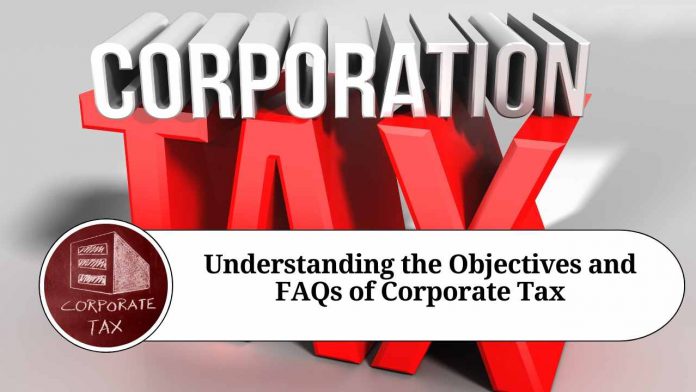Corporate tax is a tax levied on the profits earned by corporations or businesses. The primary objective of corporate tax is to generate revenue for the government. However, there are other important objectives of corporate tax as well. In this blog, we will discuss the various objectives of corporate tax and their significance.
Revenue generation:
The primary objective of corporate tax is to generate revenue for the government. The revenue generated from corporate tax is used to fund various government programs and initiatives. This revenue is also used to pay for public goods and services such as roads, schools, hospitals, and public safety.
Promoting economic growth:
Corporate tax plays a crucial role in promoting economic growth. By reducing the tax burden on businesses, governments can encourage investment, innovation, and entrepreneurship. This, in turn, can lead to job creation and economic growth.
Reducing income inequality:
Corporate tax can be used as a tool to reduce income inequality. By taxing profits earned by corporations, governments can redistribute income to other sectors of society. This can help to reduce the income gap between the rich and the poor.
Encouraging corporate social responsibility:
Corporate tax can be used to encourage corporations to act in a socially responsible manner. By providing tax incentives to corporations that engage in socially responsible activities, governments can encourage corporations to invest in areas such as environmental protection, social welfare, and community development.
Enhancing tax compliance:
Corporate tax can also be used to enhance tax compliance. By imposing penalties and fines for non-compliance, governments can encourage corporations to comply with tax laws and regulations. This, in turn, can help to reduce tax evasion and increase tax revenue.
Final Conclusion
In conclusion, the objectives of corporate tax are multifaceted and go beyond just generating revenue for the government. The different objectives of corporate tax can be achieved through a combination of tax policies that are designed to promote economic growth, reduce income inequality, encourage corporate social responsibility, and enhance tax compliance.
Other Related Blogs: Section 144B Income Tax Act
Frequently asked questions (FAQs) about corporate tax:
Q.What is corporate tax?
Corporate tax is a tax levied on the profits earned by corporations or businesses.
Q.Why do corporations have to pay taxes?
Corporations have to pay taxes to fund government programs and initiatives, including public goods and services such as roads, schools, hospitals, and public safety.
Q.How is corporate tax calculated?
Corporate tax is calculated based on the taxable income of the corporation, which is its revenue minus expenses and deductions. The tax rate varies depending on the jurisdiction.
Q.Are there any tax incentives for corporations?
Yes, some governments offer tax incentives for corporations to encourage them to engage in socially responsible activities, invest in research and development, or operate in certain areas or industries.
Q.How does corporate tax affect economic growth?
Corporate tax can affect economic growth by either encouraging or discouraging investment, innovation, and entrepreneurship. Lower corporate tax rates or tax incentives can encourage businesses to invest more in their operations, research and development, and job creation, which can lead to increased economic growth.
Q.How does corporate tax affect income inequality?
Corporate tax can affect income inequality by generating revenue that can be used to fund social welfare programs such as food assistance, healthcare, education, and housing. This can help to reduce poverty levels and improve the quality of life for those who are less fortunate.
Q.What are the penalties for non-compliance with corporate tax laws?
Penalties for non-compliance with corporate tax laws vary depending on the jurisdiction but can include fines, interest on unpaid taxes, and even criminal charges in some cases.
Q.Can corporations avoid paying taxes?
Some corporations may engage in tax avoidance strategies, which are legal methods of minimizing tax liability. However, tax evasion, which involves deliberately concealing income or assets to avoid paying taxes, is illegal and can result in severe penalties.




















